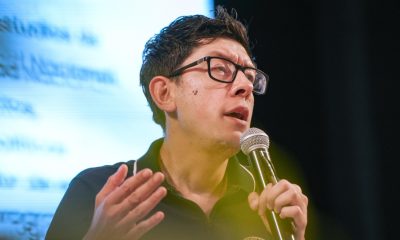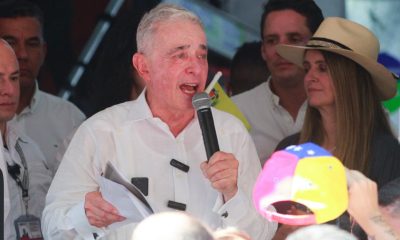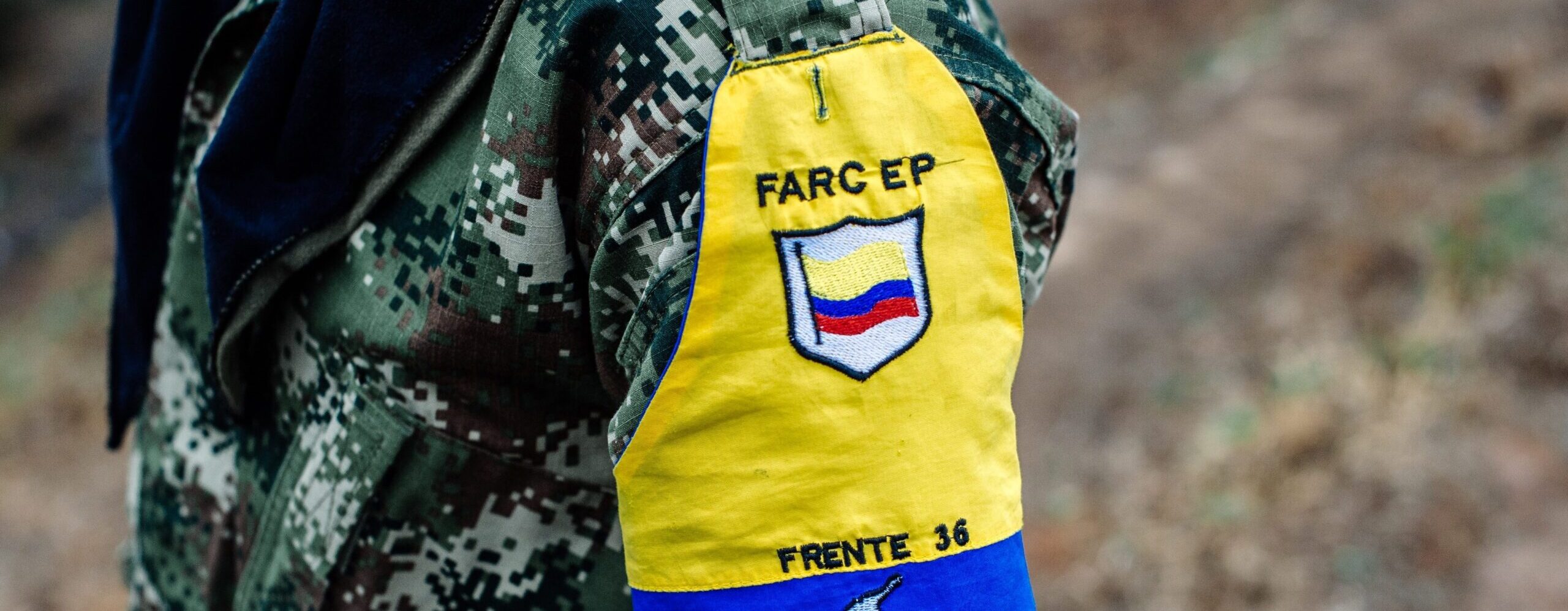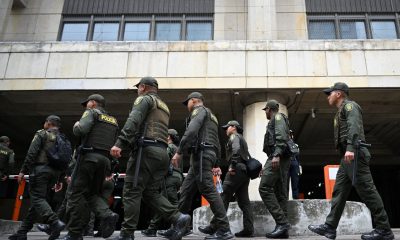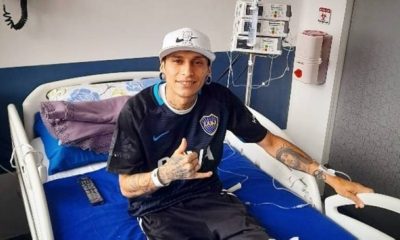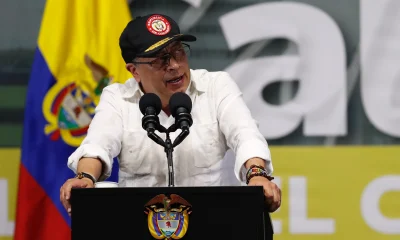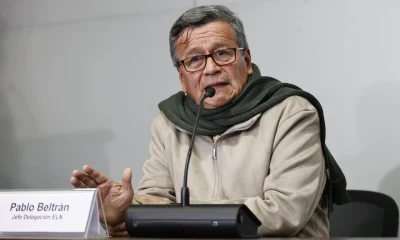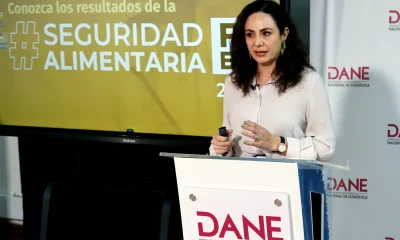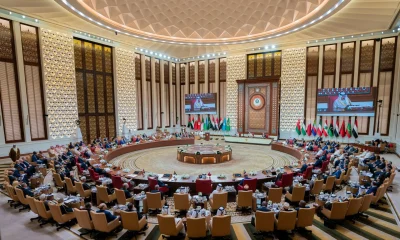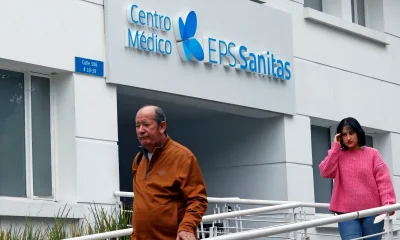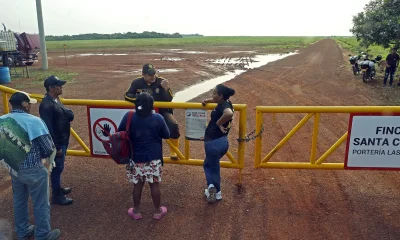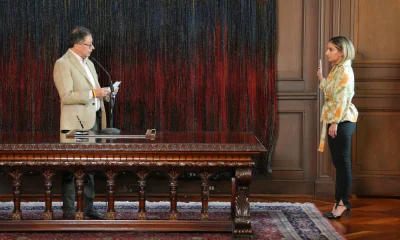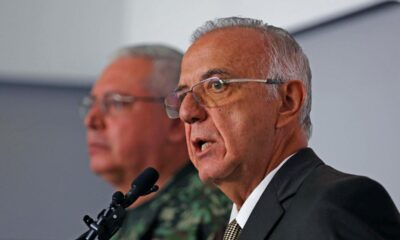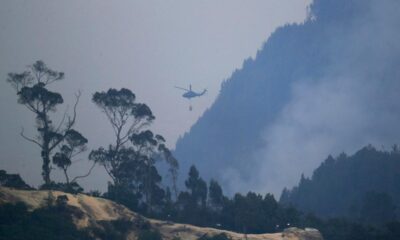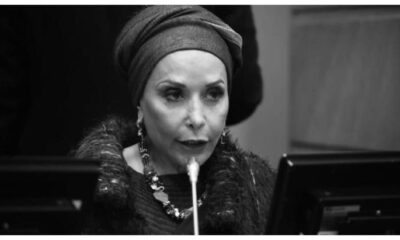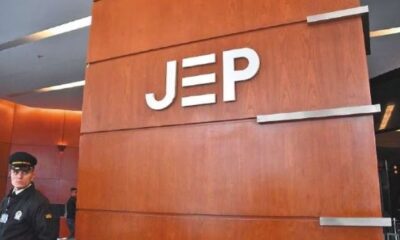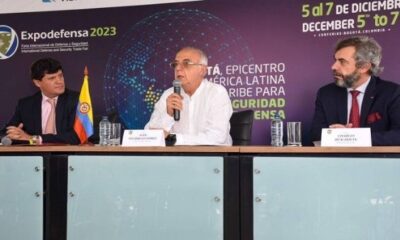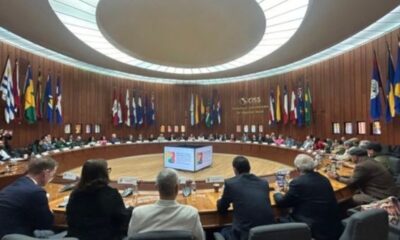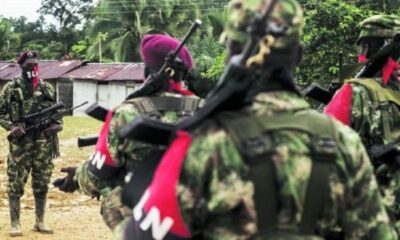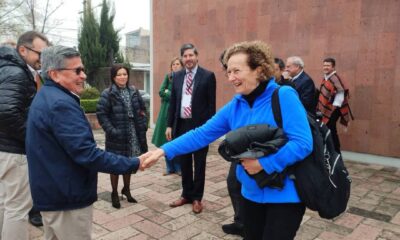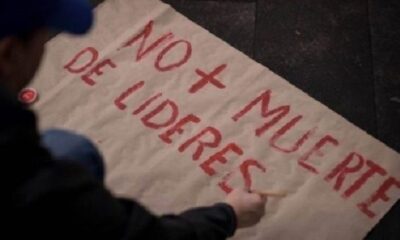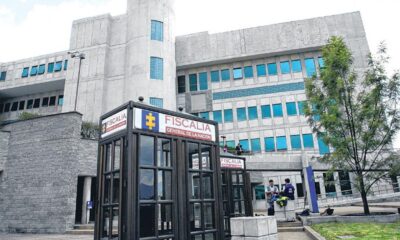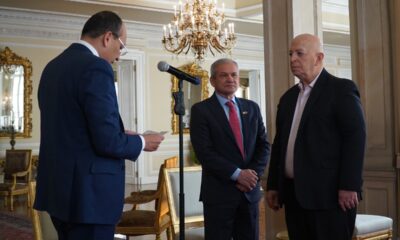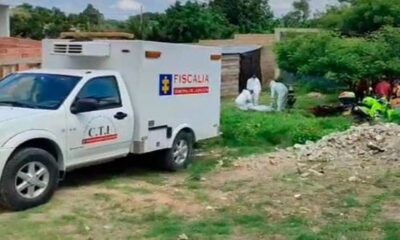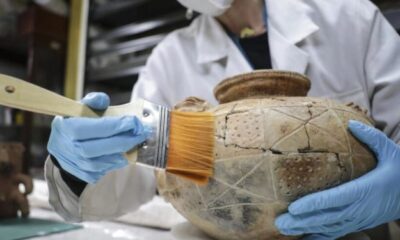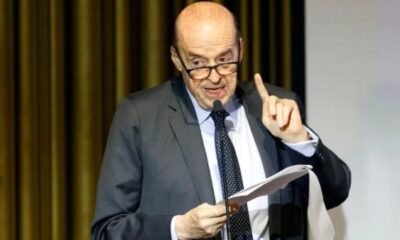International
Colombia resumes talks with powerful ELN guerrilla group
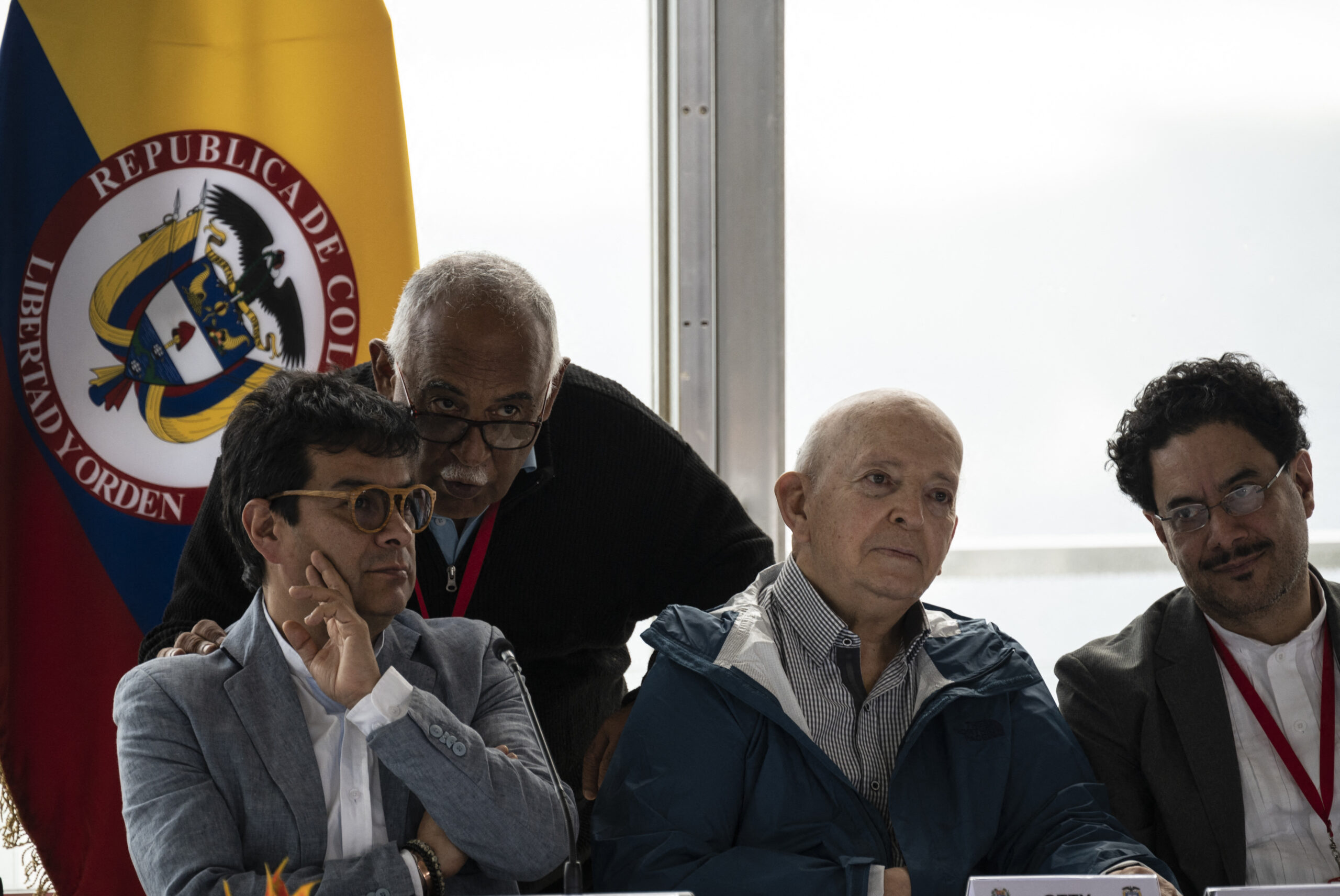
| By AFP |
Colombia’s government and the National Liberation Army (ELN), the last recognized rebel group in the country, resumed formal peace talks in Venezuela Monday for the first time since they were suspended in 2019.
The talks are a push by President Gustavo Petro, who in August became Colombia’s first-ever leftist leader, and has vowed a less bellicose approach to ending violence wrought by armed groups, including leftist guerrillas and drug traffickers.
In their first meeting, the parties agreed to “resume the dialogue process with full political and ethical will,” according to a joint statement.
They added that the talks aim to “build peace” and make “tangible, urgent, and necessary” changes, highlighting the need for “permanent compromises.”
The first round of talks will last 20 days.
Colombia has suffered more than half a century of armed conflict between the state and various groups of left-wing guerrillas, right-wing paramilitaries and drug traffickers.
The ELN started as a leftist ideological movement in 1964 before turning to crime, focusing on kidnapping, extortion, attacks and drug trafficking in Colombia and neighboring Venezuela.
It has around 2,500 members, about 700 more than it did when negotiations were last broken off. The group is primarily active in the Pacific region and along the 2,200-kilometer (1,370-mile) border with Venezuela.
Dialogue with the group started in 2016 under ex-president Juan Manuel Santos, who signed a peace treaty with the larger Marxist Revolutionary Armed Forces of Colombia (FARC) rebel group that subsequently abandoned its weapons and created a political party.
But the talks with the ELN were called off in 2019 by conservative former president Ivan Duque following a car bomb attack on a police academy in Bogota that left 22 people dead.
Petro — himself a former guerrilla — reached out to the ELN shortly after coming to power, as part of his “total peace” policy.
The ELN peace talks delegation spent four years based in Cuba, as they had been barred from returning to Colombia by the previous government.
They traveled to Venezuela last month, where the fresh round of talks was announced.
Colombian Defense Minister Ivan Velasquez warned that the negotiations do not imply a “suspension of operations” against the ELN.
“If there is an encounter with someone who has an arrest warrant, they must be captured… There is no ceasefire,” he said.
‘We all have to change’
Colombian peace commissioner Ivan Danilo Rueda hailed a “historic moment” for the country after the meeting.
“We are here honoring life, the lives of so many beings who are no longer here,” Rueda said. “Murdered, disappeared.”
ELN delegate Pablo Beltran said he hoped the dialogue would be “an instrument of change… and we hope we won’t fail.”
“In Colombia, we all have to change” and “overcome the dynamic of death,” he said.
Caracas is hosting the first meeting, and the talks will rotate between the other guarantors Cuba and Norway.
A statement from the guarantor nations said Monday’s meeting was “an important step to achieve peace.”
UN chief Antonio Guterres’s special envoy in Colombia, Carlos Ruiz Massieu, called on “the parties and Colombian society to take advantage of this historic opportunity.”
“I reiterate the support of the Secretary General @antonioguterres to this process,” he wrote on Twitter.
Venezuela’s President Nicolas Maduro hailed the process as “a message of hope for a peaceful Latin America and Caribbean,” at a rally in the capital.
International
Claudia Sheinbaum: Operation Against ‘El Mencho’ Was Based on Pending Arrest Warrants

Mexico’s President Claudia Sheinbaum on Wednesday rejected claims that the military operation that resulted in the death of Nemesio Oseguera Cervantes, known as “El Mencho,” leader of the Jalisco New Generation Cartel (CJNG), was carried out under pressure from the United States government.
Sheinbaum explained that the deployment of federal forces was aimed at executing outstanding arrest warrants against Oseguera Cervantes, who was considered one of the most wanted criminals in both Mexico and the United States.
“That was not the objective (to ease pressure from the United States). It is very important, and I want to repeat it. This individual had an arrest warrant, or several,” Sheinbaum said, referring to the operation conducted on February 22.
According to the president, the initial goal was to capture Oseguera Cervantes, but military forces responded after coming under attack during the intervention.
“The operation was to detain him. The problem is that they were attacked — the Secretariat of National Defense — and they responded at that moment,” she said.
The president insisted that the action was not carried out in response to external demands, although she acknowledged intelligence cooperation with the United States.
“It was not done in any way because of pressure from the United States, not at all. Of course, there was intelligence information from the United States that was used specifically,” she concluded.
International
Spain Denies Any Agreement to Cooperate with U.S. Military in Iran Operations
International
White House Says Spain Agrees to Cooperate with U.S. Military After Trump Threatens Trade Embargo

White House Press Secretary Karoline Leavitt said Wednesday that Spain has agreed “in recent hours” to cooperate with the U.S. military, following President Donald Trump’s threat to impose a trade embargo on Madrid.
Trump had warned of potential commercial measures after Spain reportedly refused to allow the Pentagon to use facilities at Spanish military bases for operations related to Iran.
“With respect to Spain, I think you heard the president’s message yesterday loud and clear, and I understand that in recent hours they have agreed to cooperate with the United States military,” Leavitt said during a press briefing.
She added that the U.S. military is currently coordinating with its counterparts in Spain. However, the president expects broader support.
“The president expects that all of Europe, all of our European allies, of course, will cooperate in this important mission — not only for the United States, but also for Europe,” Leavitt said.
Her remarks came in response to questions about Spain’s position and its role as a U.S. ally amid rising tensions surrounding operations involving Iran.
-

 International4 days ago
International4 days agoIran Reports 201 Dead, 747 Injured After U.S. and Israeli Strikes
-

 International3 days ago
International3 days agoBrazil’s Supreme Court Rejects Bolsonaro’s Bid for House Arrest
-

 International3 days ago
International3 days agoAnti-ICE Billboard Campaign Targets Immigration Spending in 31 U.S. Cities
-

 International2 days ago
International2 days agoSpain’s Prime Minister to Address Nation Amid Trump’s Trade Threats
-

 International4 days ago
International4 days agoPope Leo XIV Urges End to ‘Spiral of Violence’ in Middle East
-

 Sin categoría5 days ago
Sin categoría5 days agoTrump: ‘We Think It’s True’ Amid Claims Iran’s Supreme Leader Was Killed
-

 International5 days ago
International5 days agoSecurity Council to Hold Emergency Meeting on Middle East Crisis
-

 International3 days ago
International3 days agoTrump Warns of ‘Major Wave’ of Attacks as Iran Conflict Escalates
-

 International23 hours ago
International23 hours agoWhite House Says Spain Agrees to Cooperate with U.S. Military After Trump Threatens Trade Embargo
-

 International3 days ago
International3 days agoMexico Calls for Immediate Probe After National Dies in ICE Custody
-

 International2 days ago
International2 days agoNew York Announces First 2,000 Seats in Universal 2-K Program
-

 International23 hours ago
International23 hours agoSpain Denies Any Agreement to Cooperate with U.S. Military in Iran Operations
-

 Central America23 hours ago
Central America23 hours agoNicaragua Held Responsible for Harassment of Opposition Prosecutor and His Family
-

 International3 days ago
International3 days agoBolivia Orders Three Investigations Into Deadly Military Plane Crash
-

 International2 days ago
International2 days agoWarner Bros. Developing First ‘Game of Thrones’ Movie With ‘Andor’ Writer
-

 Central America3 days ago
Central America3 days agoPanama Canal Monitoring Trade as Middle East Conflict Disrupts Shipping
-

 Central America2 days ago
Central America2 days agoGuatemala’s Attorney General Fails in Bid for Top Court Seat Amid Corruption Allegations
-

 International23 hours ago
International23 hours agoClaudia Sheinbaum: Operation Against ‘El Mencho’ Was Based on Pending Arrest Warrants































